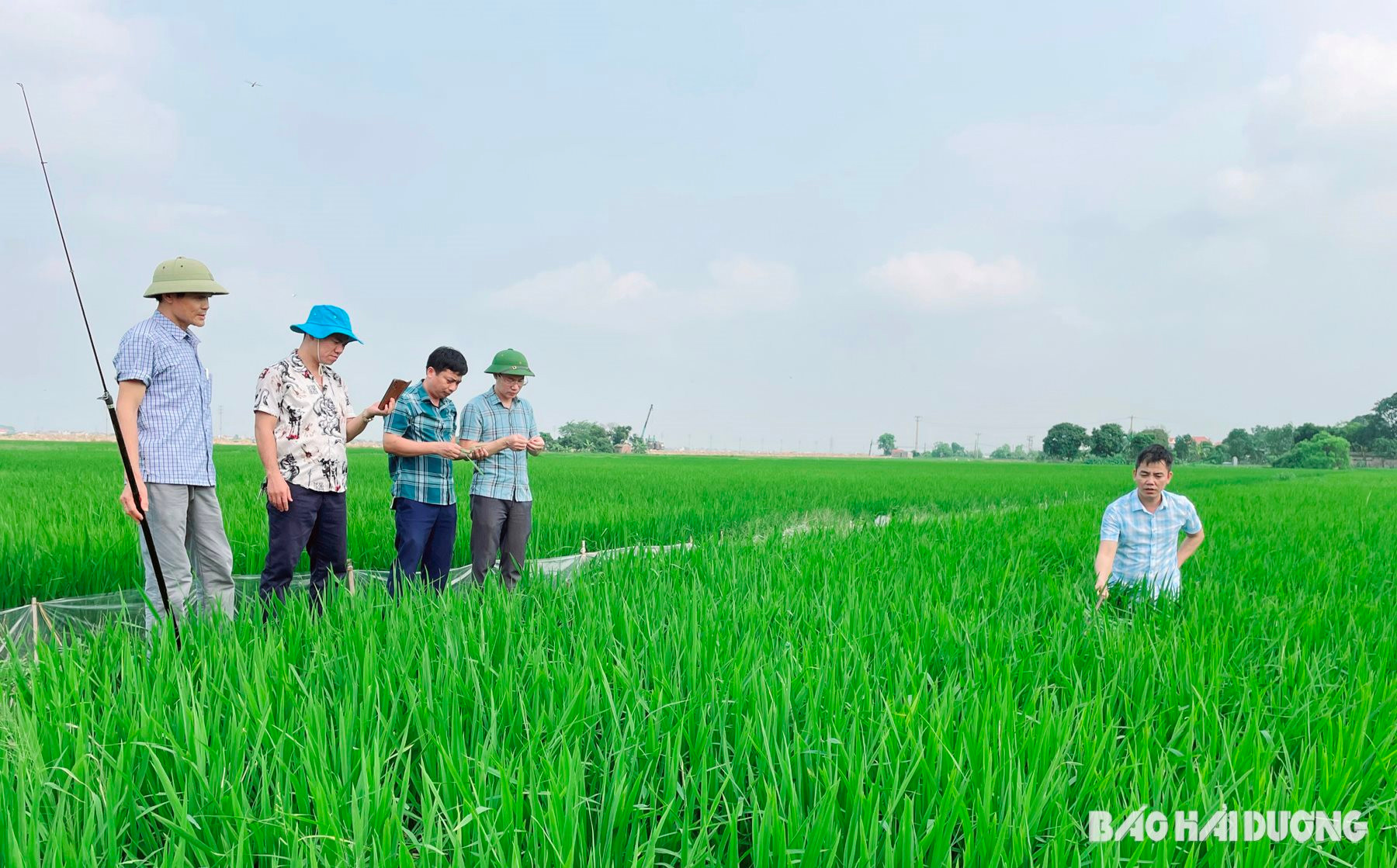The Department of Cultivation and Plant Protection (Department of Agriculture and Rural Development of Hai Duong) recommends that farmers strengthen pest control on rice and lychee plants.

Currently, rice fields in Hai Duong province are basically growing and developing well. In which, early spring tea is in the stage of heading to flowering, late spring tea is in the stage of standing and heading. Early lychee tea fruit is forming pulp, main-season lychee tea fruit is developing and increasing in size.
According to the provincial Department of Cultivation and Plant Protection, currently, some rice fields in Thanh Mien, Binh Giang, Ninh Giang, and Kim Thanh districts have small leaf rollers that have begun to hatch and lay eggs, and rice blast disease has occurred and caused local damage. Fruit borers, downy mildew, and anthracnose have also caused scattered damage to lychee tea.
The provincial Department of Cultivation and Plant Protection recommends that localities increase propaganda and urge farmers to actively check fields and prevent pests and diseases for rice and lychee.
For small leaf rollers, monitor to spray at the right time when larvae hatch (around April 26-May 3 depending on each ecological region and rice crop); only spray on rice areas with a worm density of 20 worms/m2 or more, repeat spraying after 4-5 days. Farmers are advised to choose pesticides containing the active ingredients Isocycloseram, Indoxacarb, a mixture of Indoxacar with Emamectin bezoate, Chlorfenapyr to kill small leaf rollers.
For rice blast disease, proactively spray to prevent neck disease in newly emerged rice areas and high-risk varieties such as glutinous rice, Dai Thom, BC 15, TBR225. Choose drugs containing specific active ingredients such as Fenoxanil, Tricyclazole, a mixture of Fenoxanil and Kasugamycin.
On lychee trees, focus on monitoring and preventing fruit borers, anthracnose, and downy mildew that occur in late April and early May. Farmers should stop spraying to ensure enough time between spraying and harvest.
PV